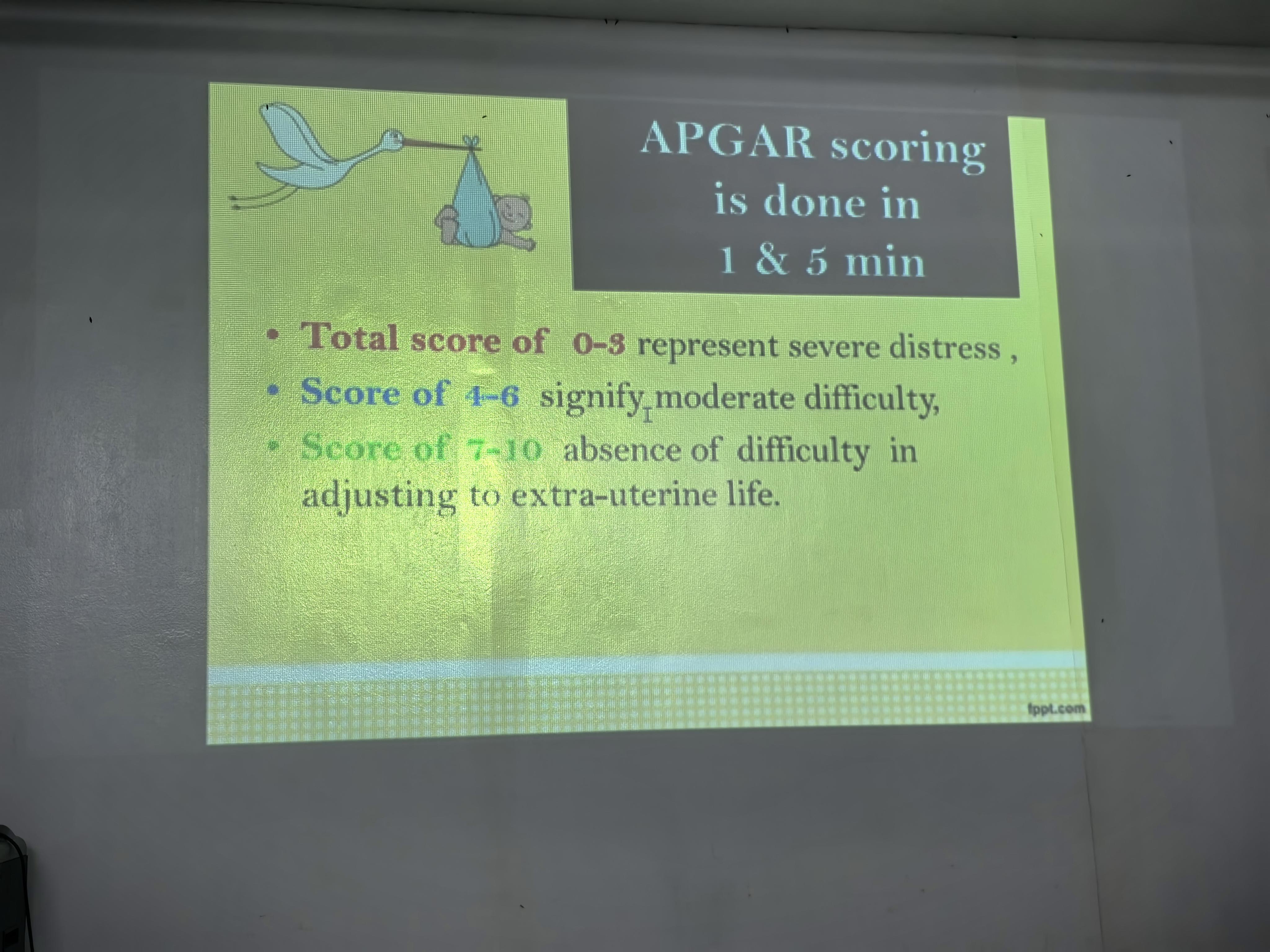What does the APGAR scoring system indicate?

Understand the Problem
The question pertains to the APGAR scoring system, which is used to assess the health of newborns immediately after birth. The slide outlines what different score ranges indicate about a baby's condition in terms of distress and adjustment to life outside the womb.
Answer
APGAR score evaluates newborn health; 0-3 severe distress, 4-6 moderate difficulty, 7-10 good adjustment.
The APGAR scoring system assesses a newborn's health immediately after birth, rating them based on five criteria: Appearance, Pulse, Grimace, Activity, and Respiration. A score of 0-3 indicates severe distress, 4-6 signifies moderate difficulty, and 7-10 suggests no difficulty in adapting to life outside the womb.
Answer for screen readers
The APGAR scoring system assesses a newborn's health immediately after birth, rating them based on five criteria: Appearance, Pulse, Grimace, Activity, and Respiration. A score of 0-3 indicates severe distress, 4-6 signifies moderate difficulty, and 7-10 suggests no difficulty in adapting to life outside the womb.
More Information
The APGAR score provides a quick assessment of a newborn's physical condition to determine if immediate medical intervention is required. It is administered at 1 and 5 minutes after birth.
Tips
A common mistake is not understanding the criteria: Appearance, Pulse, Grimace, Activity, and Respiration.
Sources
- What Is a Good Apgar Score? - Cleveland Clinic - my.clevelandclinic.org
- Apgar score: MedlinePlus Medical Encyclopedia - medlineplus.gov
- Understanding APGAR Score - StatPearls - NCBI Bookshelf - ncbi.nlm.nih.gov
AI-generated content may contain errors. Please verify critical information